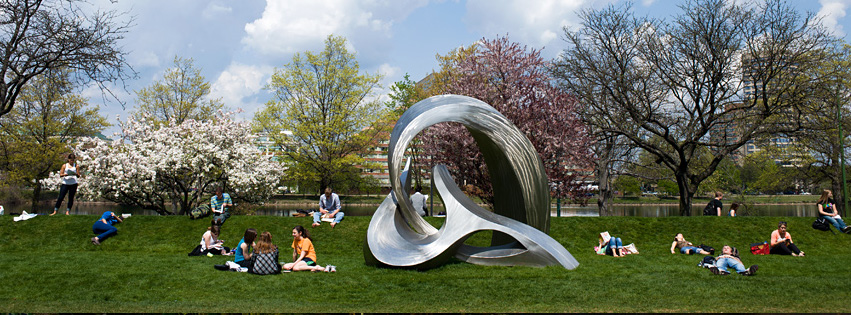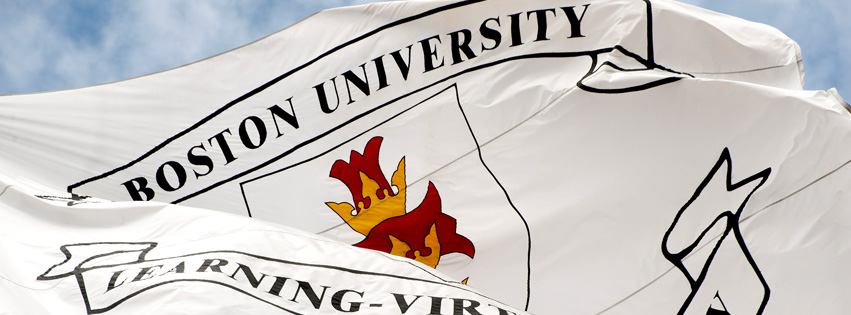Promotions on the Medical Campus
On the Medical Campus, eligibility for promotion is open to:
- Lecturers and Senior Lecturers
- Instructors, Clinical Instructors, and Research Instructors
- Assistant Professors and Associate Professors (unmodified)
- Clinical Assistant Professors and Clinical Associate Professors
- Research Assistant Professors and Research Associate Professors
- Associate Professors of the Practice
A. Promotion Standards
Each School shall define appropriate standards for promotion. These standards are subject to approval by the Medical Campus Provost and shall be made available to all faculty members in the School.
Current standards for promotion and related information are available at the following links:
While the particular standards for promotion for the different tracks vary by school, two expectations are consistent for all three schools: anational reputation for excellence in scholarly work is required for promotion from the rank of unmodified Assistant Professor to the rank of unmodified Associate Professor, and an international reputation for excellence in scholarly work is normally required for promotion to the rank of unmodified Professor. Significant weight is normally placed on the strength of these activities since the last time the faculty member was appointed or promoted.
B. Timeline for Promotion
The Medical Campus defines no rigid timeline for promotion, however progress towards promotion is expected to be discussed at each annual review meeting between Medical Campus faculty members and their immediate supervisor or department Chair, as appropriate. The general guidelines for the interval between initial appointment or last promotion and subsequent promotion for Medical Campus faculty are the following:
1. Promotion from Lecturer to Senior Lecturer, and from Senior Lecturer to Master Lecturer: In keeping with University expectations regarding the use of these titles as noted elsewhere in the Handbook, Lecturers and Senior Lecturers will normally have at least 5 years of full-time service in their respective ranks before being eligible for consideration for promotion.
2. Promotion from Instructor, Clinical Instructor, or Research Instructor to Assistant Professor, Clinical Assistant Professor, or Research Assistant Professor, respectively: The timing varies by individual and is contingent on the need for additional professorial faculty.
3. Promotion from Assistant to Associate Professor (modified or un-modified):
- MED: after at least 7-8 years in rank
- GSDM: after at least 3 years in rank
- SPH: after at least 5 years in rank
4. Promotion from Associate Professor to Professor (modified or un-modified)
- MED: after at least 5 years in rank
- GSDM: after at least 5 years in rank
- SPH: after at least 5 years in rank
Please note that individual circumstances may justify deviating from these general guidelines, either shortening or lengthening the time to promotion, and in all cases, promotion is granted on the basis of accomplishment, not on time in rank.
A faculty member whose promotion has been denied may not submit a promotion dossier for consideration to the first level of review again until a minimum of 2 years has passed since the final denial decision. In exceptional circumstances, (i) in the case of a faculty member with an unmodified title, the Dean may seek the approval of the Medical Campus Provost to waive the 2 year period; or (ii) in the case of a faculty member with a modified title, the Chair may seek the approval of the Dean to waive the 2 year period.
C. Promotion Procedures
1. Typically, the promotion process is formally initiated by the Chair of the candidate’s department in consultation with the faculty member, but may also be initiated by the faculty member. Each school on the Medical Campus has formal, written procedures for promotion materials (see Section A, above). The dossier includes a personal statement, CV, a letter from the Chair of the candidate’s department, and additional letters of evaluation solicited by the Chair or Dean, according to each school’s practices.
2. The first level of promotion review in the candidate’s department is conducted by full-time members holding a rank at least as high as that for which the candidate is considered[1]. If the department does not recommend promotion, the candidate is referred to the appropriate appeals process in section D, below. If the department recommends promotion, the department Chair forwards the results of the faculty review as well as their own recommendation to the school’s office for appointments and promotions where it is processed, as outlined in each school’s by-laws. The subsequent approval paths are as follows:
| Initial Rank | Promoted Rank | Approval Path Beyond Department |
| Lecturer or Senior Lecturer | Senior Lecturer or Master Lecturer | Dean (final) |
| Instructor (unmodified) | Assistant Professor | Dean (final) |
| Clinical Instructor, Research Instructor | Clinical or Research Assistant Professor | Dean (final) |
| Assistant Professor or Associate Professor (unmodified) | Associate Professor or Professor | Dean→ BUMC Provost → President (final) |
| Clinical or Research Assistant Professor or Associate Professor | Clinical or Research Associate Professor or Professor | Dean (final) |
| Associate Professor of the Practice | Professor of the Practice | Dean (final) |
3. Candidates, at their request, shall be given copies of an appropriately redacted Chair’s letter, and committee reports from each level of the promotion review process. Reports must be formulated or redacted to preserve the anonymity of participants to the extent possible while communicating the basis of the decisions at each level. The candidate will not receive the roster of faculty asked to provide individual evaluation letters, the letters themselves or direct quotations from evaluation letters which are submitted in confidence.
D. Appeals Process
1. The candidate may appeal a negative recommendation at each step in the review process. Appeals based solely on claims that a level of review reached an erroneous negative decision based on the merits of the case will be reviewed at the appropriate step as described in the tables below. All appeal decisions will be provided to the candidate in writing.
Table 1: Appeal Path for Promotions of Lecturers, Senior Lecturers, Instructors, Clinical Instructors and Research Instructors on the Medical Campus
| Level of Negative Recommendation | Appeal Reviewer | Outcome |
| Department or School Review Process | Dean | Supports appeal → promotion is granted |
| Denies appeal → decision is final | ||
| Dean | Medical Campus Provost | Supports appeal → promotion is granted |
| Denies appeal → decision is final |
Table 2: Appeal Path for Promotions of Assistant and Associate Professors (unmodified) on the Medical Campus
| Level of Negative Recommendation | Appeal Reviewer | Outcome |
| Department | School Promotions Committee | Supports appeal → sends case to Dean and review resumes |
| Denies appeal → decision is final | ||
| School Promotions Committee | Dean | Supports appeal → sends case to Medical Campus Provost and review resumes |
| Denies appeal → decision is final | ||
| Dean | Medical Campus Provost | Supports appeal → sends case to the President and review resumes |
| Denies appeal → decision is final | ||
| Medical Campus Provost | President | Supports appeal → promotion is granted |
| Denies appeal → decision is final | ||
| President denies after positive recommendation by the Medical Campus Provost | Reconsideration by the President | Supports appeal → promotion is granted |
| Denies appeal → decision is final |
Table 3: Appeal Path for Promotions of Clinical, Research and of the Practice Professorial Faculty on the Medical Campus
| Level of Negative Recommendation | Appeal Reviewer | Outcome |
| Department | School Promotions Committee | Supports appeal → sends case to Dean and review resumes |
| Denies appeal → decision is final | ||
| School Promotions Committee | Dean | Supports appeal → promotion is granted |
| Denies appeal → decision is final |
2. The candidate must file an appeal within 30 calendar days of being notified in writing of the negative recommendation.
3. Candidates must identify all grounds on which their appeals based, as they have only one opportunity to request a review of a negative recommendation. The appeal must be based on one or more of the following grounds: (a) the candidate has met all criteria for promotion and the decision was erroneous on the merits (appeal review follows path in the tables above); (b) the promotion review process was marred by significant procedural errors that substantially affected the final decision; or (c) the promotion review process was affected by unlawful discrimination that substantially affected the final decision. If the appeal is based on the merits plus additional grounds (b and c), the additional grounds will be reviewed before the review on the basis of the merits of the case. A review on the merits of the case is available, even when an appeal on the basis of b and c has been unsuccessful.
4. If an appeal includes claims that:
- procedural errors or deviations from standard processes at the department, college, or University level that substantially affected the decision; or
- bias or discrimination on the basis of race, color, creed, religion, ethnic origin, age, sex, disability, sexual orientation, gender identity, or other unlawful basis that substantially affected the decision
then the Medical Campus Provost will determine whether:
- the claims of procedural errors or unlawful discrimination, if ultimately supported by the evidence, would provide a basis to re-examine the negative promotion recommendation; and
- a formal review by a faculty committee would aid in determination of relevant facts.
The Medical Campus Provost’s decision on whether to proceed with committee review is final.
5. If the Medical Campus Provost determines that committee review is warranted, the Medical Campus Provost will appoint an ad hoc faculty committee of three senior faculty (naming one as Chair) and notify the candidate of their appointment. A candidate who believes that any of the ad hoc committee members cannot participate as an objective fact finder must inform the Medical Campus Provost within seven calendar days. The Medical Campus Provost will decide if an alternative committee member is needed.
6. The ad hoc committee should complete its review and provide a written report of its findings of fact to the Medical Campus Provost within 75 calendar days. The ad hoc committee’s review process may include review of documents, including the promotion dossier, as well as witness interviews and consultation with other University personnel including the Equal Opportunity Office, as appropriate. The witness will be given advanced notice as to the nature of the appeal prior to the interview. The candidate may select a faculty member advisor who may accompany the candidate to any appearance before the ad hoc committee for purposes of providing support, but who may not directly participate in the review.
7. This review process, including the identity of the members of the ad hoccommittee, information obtained in the review process, and information disclosed to witnesses consulted by the committee should be kept confidential by all participants, including the candidate and witnesses. The ad hoccommittee will not disclose to the candidate the identity of the external evaluators, individual evaluation letters, or direct quotations from evaluation letters which are submitted in confidence.
8. The Medical Campus Provost will review the ad hoccommittee report, consult with others as needed, and make a final decision whether procedural errors or unlawful discrimination may have affected the outcome of the promotion recommendations. The department Chair and the candidate will be informed of this decision in writing, and the decision is final.
9. If the Medical Campus Provost finds the outcome may have been affected by procedural errors or unlawful bias, the Medical Campus Provost will establish an internal mechanism to reconsider the decision.
FOOTNOTES
[1]The Goldman School of Dental Medicine allows faculty members having at least half-time appointments to participate in promotions reviews.
Last revised on April 16, 2024, by the University Council




